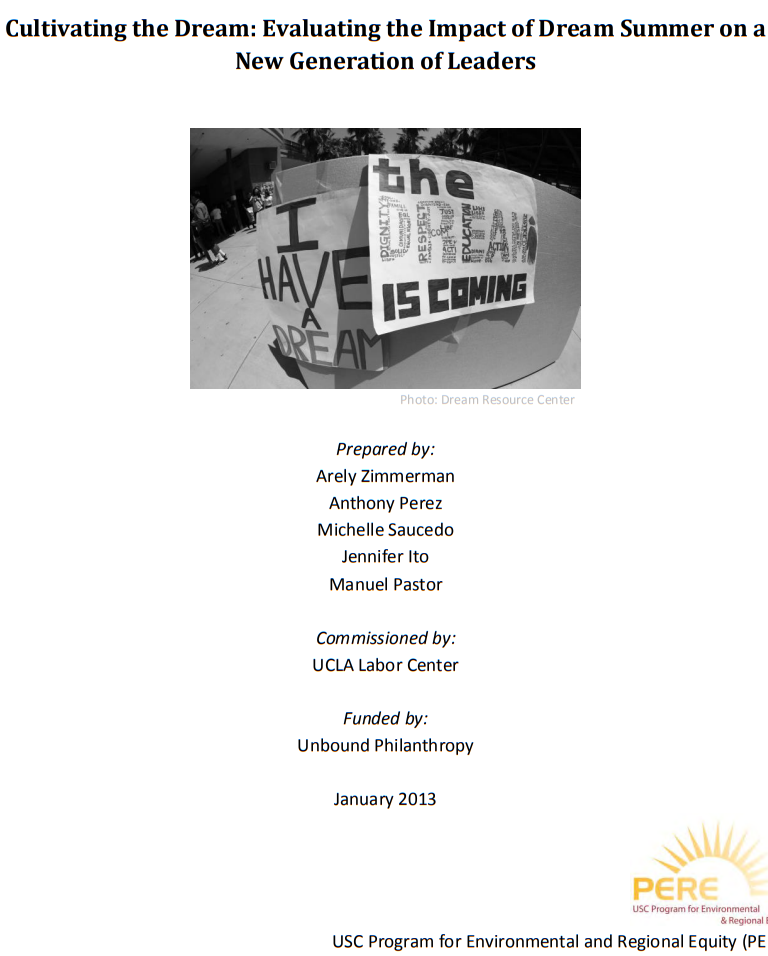
January 2013
Prepared by Arely Zimmerman, Anthony Perez, Michelle Saucedo, Jennifer Ito, and Manuel Pastor, commissioned by the UCLA Labor Center, and funded by Unbound Philanthropy
Please note: reports dated earlier than June 2020 were published under our previous names: the USC Program for Environmental and Regional Equity (PERE) or the USC Center for the Study of Immigrant Integration (CSII).
Cultivating the Dream: Evaluating the Impact of Dream Summer on a New Generation of Leaders highlighted the key findings from an evaluation of the first two years of Dream Summer, a program organized by the UCLA Labor Center that places immigrant students and activists in summer internships. The researchers found that the program was having a clear and direct impact on interns’ lives, not only in terms of professional development, but also in terms of their identity building, self-esteem, and inter-personal relationship—capacities that would help them excel both academically, professional, and as movement building leaders.
For host organizations, the most commonly cited benefit was having interns help them reach immigrant and youth populations more effectively. The report’s main take-away was that Dream Summer was effective in achieving its outcomes of professional leadership development because it was undertaken in the context of social justice movement building.
Partners
UCLA Labor Center
The mission of the UCLA Labor Center is to promote research, education, and policy change to improve the lives of workers, students, and our communities. The Labor Center is part of the UCLA Institute for Research on Labor and Employment.
Dream Resource Center
The Dream Resource Center was created in 2011 to develop educational and policy materials to help undocumented students access higher education.



